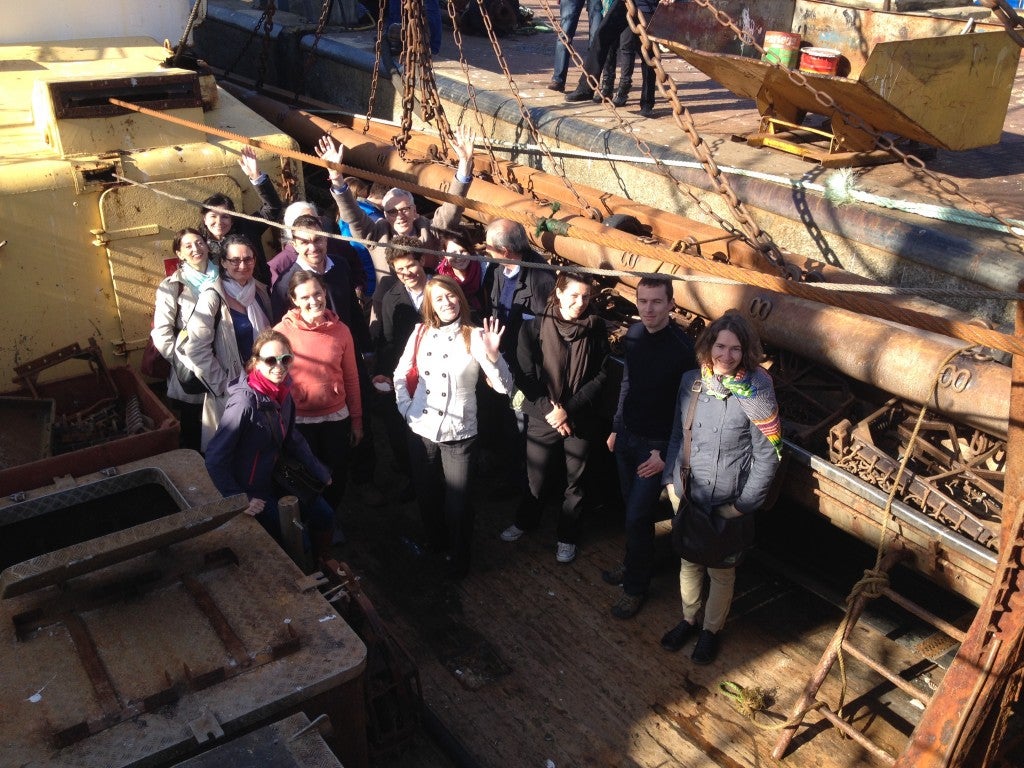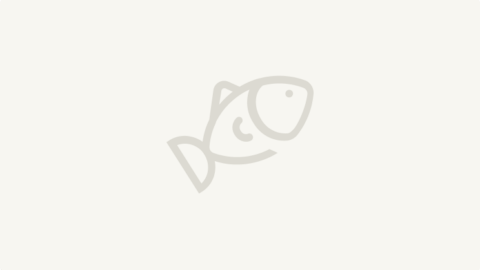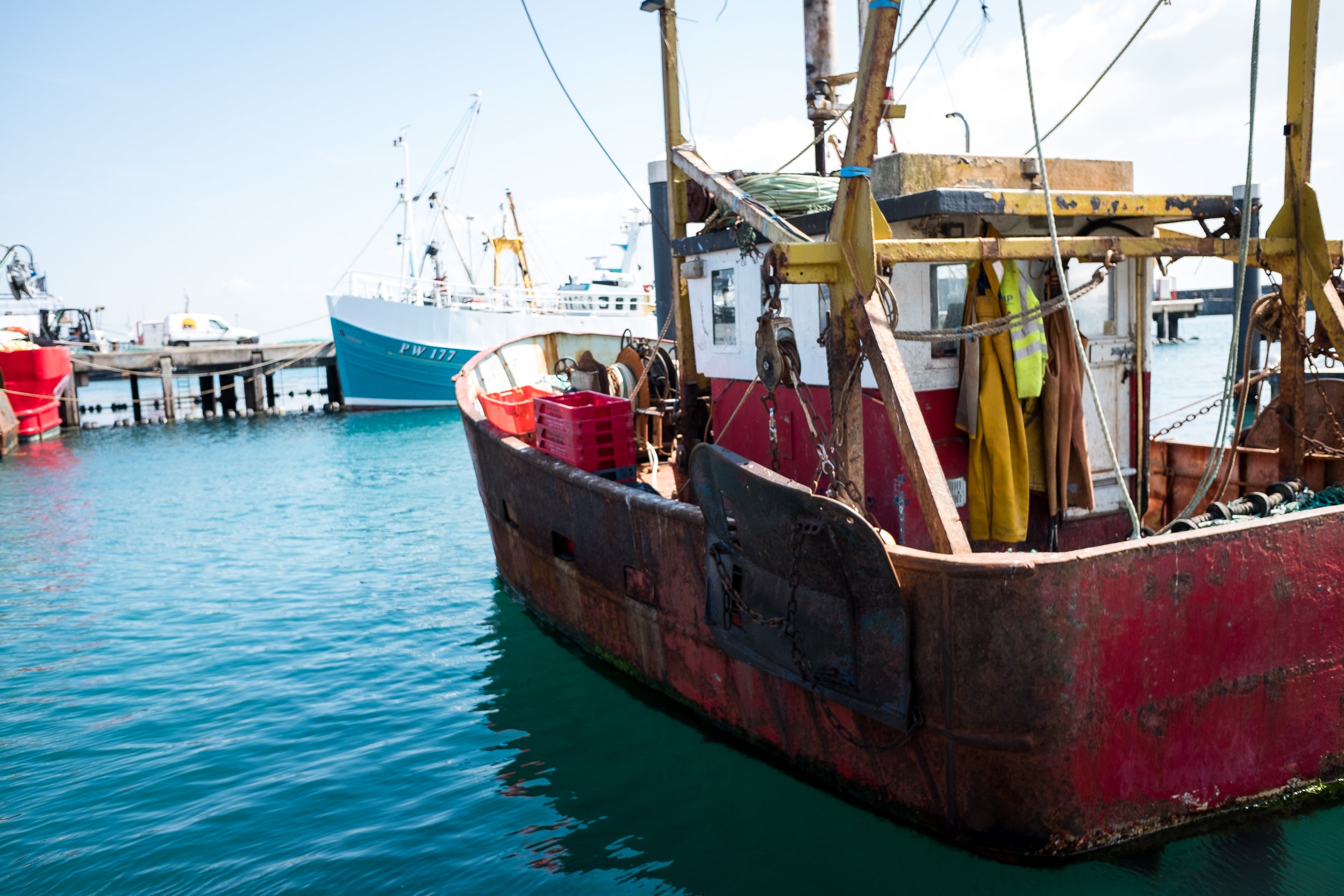Breaking down barriers, building up trust: French & UK Channel scallop fisheries are ready for change

Dialogue is often the first step towards change, and is a sign of willingness to cooperate. And there was plenty of it at the Scallop Management Workshop held recently in Brixham, England. The event was organised by WWF and EDF in collaboration with GAP2, a research project funded by the European Commission. The forum provided an inclusive setting to engage industry on design and management of their fishery and to identify opportunities to strengthen the existing management framework.
For the first time, industry participants from both sides of the French/English Channel were in the same room discussing what changes are necessary to achieve greater sustainability for the shared scallop fishery. More than 60 people took time off the water and from their jobs to tackle the management challenge head on. Appreciating differing perspectives was a central component of the gathering’s success. It requires a good deal of patience and frankly, courage, when addressing issues of such cultural and economic importance.
“We have heard from scientists in the UK and in France – they are frustrated due to lack of resources from Government departments. Those of us in the industry have said ‘we’ve got the platforms, come out on our boats and gather the data – teach us to become gatherers of data’.
Fishermen are willing to do that, but they need to be guided which takes time and resources…but it can happen, and I think it should happen, and I hope it does happen,” said Jim Portus, Chief Exec, South Western Fish Producer Organisation.
It’s important to build on the momentum generated in Brixham with a follow up workshop focused on putting dialogue into action. Ideally, a more tailored group will be able to map out the steps required to inform appropriate management and accountability measures.
Government and scientists will be instrumental in identifying these needs, but the process should be taken forward through a co-managed, bottom-up approach with industry leading the discussions. A collaborative approach is imperative to produce a long-term management plan that achieves genuine sustainability and secures a viable and healthy fishery for now and for the future. We look forward to supporting the next steps of this discussion and learning more about the different needs of stakeholders in this important fishery.











